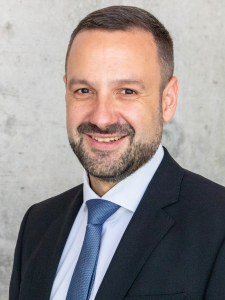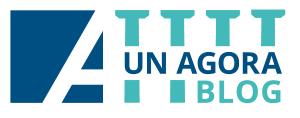At the mid-point of the 2030 agenda: some reflections on Justice for All - Foundation Office New York
In 2015, global leaders took a historic step to include peace, justice and strong institutions as part of the 2030 Agenda for Sustainable Development. The adoption of SDG16 demonstrated a clear recognition by all the countries of the world that economies might be performing well, and health and education may improve; but without peace and justice, people will be unable to achieve their full potential and development will remain precarious.
They were perhaps mindful of the fact that the Arab Spring protests and the ensuing violence was sparked by Mohamed Bouazizi’s (a fruit vendor in Tunisia) death by suicide in December 2010, as a protest against sustained harassment by the police. At the time, Tunisia was hailed as a “success story”, including by the Human Development Report (HDR) published just a month before Bouazizi’s death. The per capita incomes had almost doubled in the last decade, poverty rate had fallen by 1/5th, and the country had shown remarkable progress on the Human Development Index. The HDR had, however, warned about lagging political freedoms and a failure to protect democracy and the rule of law.
Injustices have a huge impact on people, families, communities, and countries. They can result in loss of wages, employment, housing, or illness. The Justice for All report notes that “People with a justice problem lose an average of one month’s wages…. Around a third of people with a justice problem are likely to experience a physical or mental health problem”. Recent data from the World Justice Project indicates that on average “the economic cost of legal problems for individuals amounts to 1.7% of the GDP. Country-level estimates range from 0.1% to over 5%”. Injustices also lead to lack of trust in institutions and the state, which weakens the social contract. By driving exclusion and fueling grievances, injustice increases the risk of political instability and violent conflict. In his report on Our Common Agenda, the UN Secretary General, recognizes that “justice is an essential dimension of social contract”.
Yet, 5.1 billion people – two thirds of the world’s population – lack meaningful access to justice. If we want to achieve equal access to justice for all, justice systems need to transform by putting people at their center. The following principles of people-centered justice were first articulated in the Hague Declaration on Equal Access to Justice for all by 2030:
- Put people and their legal needs at the center of justice systems. Understand what people need and want when they seek justice, which obstacles they face and what kind of justice they receive.
- Solve justice problems. Transform justice institutions and services through a broader range of justice providers, to ensure respect for human rights, to respond to unmet legal needs of billions of people, using high-tech as well as low-tech innovative solutions, based on data, evidence and learning, while taking into account the specificities of the context.
- Improve the quality of justice journeys. Empower people to understand, use and shape the law, while offering them fair informal and formal justice processes that meet their needs in terms of both procedures and outcomes.
- Use justice for prevention. Make use of mediation and other methods to prevent disputes from escalating. Address legacies of human rights violations. Invest in justice systems that are trustworthy and legitimate.
- Empower people to access services and opportunities. Break down legal, administrative and practical barriers that people face to obtain documents, access public services, and participate fully in society and the economy, while promoting gender equality
At its core, people-centered justice is data-driven, evidence-based and outcome focused. Empowering people and respecting their rights lies at its heart, but it is not only about bottom-up community-based approaches and applies equally to institutional reform. Access to justice is not narrowly defined as mere access to courts or formal institutions; it is understood more broadly as people’s ability to prevent and resolve their disputes, grievances and other justice problems using a range of justice actors and systems.
The evidence speaks for itself: the business-as-usual approach is not working to prevent and resolve people’s justice problems. Data shows that justice aid is on the decline and it is unlikely that in the current context, either donors or domestic finance ministries will see an increase in their justice budgets. Any positive change will have to rely on effective allocation of resources. Justice data and evidence is critical to support governments and donors in deciding which policies, strategies, solutions and justice systems to fund and to what extent.
Data driven. We need data to better understand the most common justice problems faced by people, where they go to resolve them and their experience in trying to resolve them. This data can then be used to focus on people’s most common problems and improve their justice journeys, with tailored actions for those most at risk of being left behind. Yet, notably, SDG16 is one of the goals with the lowest available data. For example, only 6 countries have reported against the new civil justice indicator 16.3.3.
Evidence-based focus on outcomes. Justice is one of the few sectors which focuses so much on processes that it often neglects outcomes for people. Can we imagine a health minister saying that the Ministry has built hospitals, trained nurses and procured medicines but they don’t really know whether all this prevents or cures diseases? Yet, while most justice ministries will claim with pride that they have an independent judiciary and bar association, trained judges and lawyers and free legal aid services, in all likelihood, they will lack evidence to understand the extent to which people are able to use these systems, actors and services to prevent and resolve their most common problems. This is not to say that processes are not important but to emphasize that the importance of fair outcomes for people should not be forgotten.
Even when justice actors and systems focus on outcomes, it is often for institutional efficiencies rather than to improve people’s ability to resolve their problems. However, when we don’t take a people-centered approach, even laudable goals like reducing pretrial detention can have unfair outcomes. Illustratively, we have ample examples of governments and judiciaries pushing poor people to ‘plea bargain’ and effectively plead guilty to crimes they may or may not have committed in order to be released from detention, often with the period undergone in the prison serving as the punishment. The fact that a poor daily wager has pleaded guilty to stealing a bike merely to be free to feed his family does on weigh on our conscience. That he is likely to be arrested again on suspicion when there is another bike theft in the areas or that this might impact his ability to get employment in the formal sector is often easy to ignore when there is pressure to demonstrate low pretrial detention rates.
Moving forward, we need more evidence-based policies and solutions to people’s problems. If a policymaker or funder in other sectors like health or climate wanted to know how to reduce child mortality rates or cut carbon emissions in half, there would be readily available evidence-based solutions. Yet, if a justice minister or a donor wanted to improve resolution rates or fair outcomes for land, family, property, or labor disputes, they would struggle to find easily available and scalable solutions. Again, there are some very good examples or Gamechangers like using prison paralegals to reduce pretrial detention, or community-based mediation models or one-stop dispute resolution platforms but such solutions are: i) very few; and ii) often not operating at scale.
However, it is not all doom and gloom. The winds of change are blowing and there is much to be hopeful about. A people-centered approach to justice is gaining traction. The recently launched UN Secretary General’s New Vision for the Rule of Law states that the “rule of law is people-centered”. To date, over 60 countries have endorsed this approach and the principles of people-centered justice.
There is an increased focus on justice data and evidence. An increasing number of countries and organizations are conducting legal needs surveys, either standalone or as a part of broader surveys. The World Bank’s new initiative, Global Partnership on Justice and Rule of Law, seeks to connect different stakeholders and ‘provide analytical and thought leadership to advance justice reform by co-generating, consolidating, and disseminating knowledge’. The Global Justice Data Observatory aims to identify a shared data and research agenda on people-centered justice. The Justice Action Coalition, a multistakeholder, cross-regional high ambition coalition comprising countries and organizations, is committed to promoting people-centered justice and closing the justice gap. It seeks to demonstrate political leadership, generate data and evidence, make a case for financing justice effectively, support national action and build a shared narrative and a strong movement on people-centered justice.
As we celebrate the UN Day today, it is an opportune moment to be mindful of the crises facing us – climate change, rising conflicts, increasing inequalities and immense polarization – and recognize that justice, which lies at the heart of the UN Charter, is a critical tool to build resilience of communities, strengthen their trust in institutions and forge the path towards sustainable development. Now is the time to align our vision and work collaboratively to demonstrate measurable change by the next SDG Summit in 2027.
PDF Version
About the author
Swati Mehta is the Program Director, Justice for All for Pathfinders for Peaceful, Just and Inclusive Societies initiative. A passionate believer in law and justice as tools for empowering people, building trust and social change, Swati has worked on rule of law and access to justice for over 20 years.
Starting her career by providing legal aid for women, she soon moved on to systemic reform. More recently, her work has focused on legal empowerment as well as decentralization and democratization of justice, with people at the center of justice programming. Working with several CSOs, UNDP and other justice programs in South and Southeast Asia, Swati has provided technical advice and/or strengthened capacities of police organizations, prison officials, lawyers, legal aid institutions, judiciary, law schools, and CSOs in taking a people-centered and learning approach to justice. She has written/edited/reviewed several papers on legal empowerment, policing, legal aid, and traditional, customary, and informal justice systems.
Swati is a Chevening Scholar and holds an LLM in International Criminal Law, Criminology and Criminal Justice from King’s College London. She loves to engage with young people, artists, and musicians on justice. She excels at building strong and productive cross-cultural teams.




